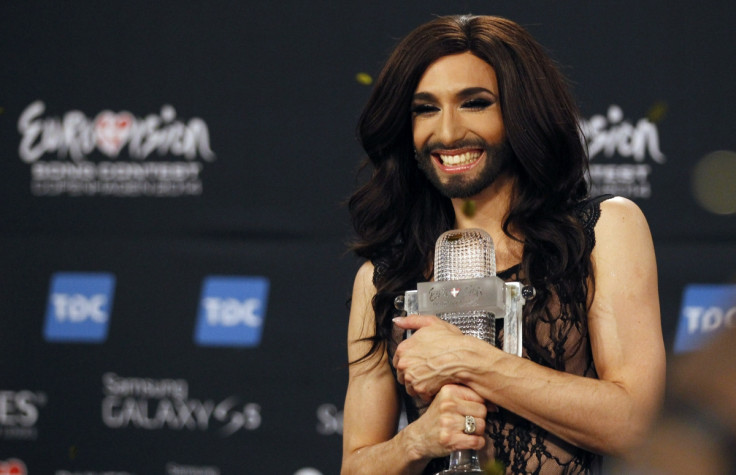What Next for Eurovision Winner Conchita Wurst, Austria's Bearded Lady?

The Eurovision song contest turned political as current events in Ukraine and Russia's anti-gay policies came to the fore.
Russia's entry, the Tolmachevy Sisters, were greeted with boos from the audience during the results. When Russia's delegate appeared on a TV screen to announce the votes, angry chants and more boos could be heard from the normally apolitical audience.
The biggest roars of approval came for Eurovision winner Conchita Wurst from Austria. The 25-year-old drag queen seemed lost for words at the overwhelming support, receiving 290 ponts for her song Rise Like a Phoenix.
At the winner's press conference, Wurst said: "I really dream of a world where you don't have to talk about your sexuality, where you are from. Tonight we really showed that we are all part of the same family, not of separate communities. I know it sounds cheesy but: we are one!"
Overwhelmed at the occasion, Wurst shed tears during the live show. "I cried because I am so happy and so thankful, and I said to myself: 'Please, just one time, let me be the one going for gold.'"
Let's change our way of thinking - Conchita is just a woman with a beard
René Berto, her manager, thanked the Austrian delegation: "Let's change the world and make it a little bit better. Conchita always says: wish for the moon and you'll reach at least the stars, but now we just landed on the moon! Let's change our way of thinking - Conchita is just a woman with a beard."
Wurst's selection sparked controversy in Austria. Four days after she was announced as the country's representative, more than 31,000 people liked an "Anti-Wurst" Facebook page.
In October 2013, the Ministry of Information in Belarus received a petition calling on BTRC, Belarus' state broadcaster, to edit Wurst's performance out of its Eurovision broadcast. The petition claimed that the performance would turn Eurovision "into a hotbed of sodomy".
But the backlash didn't stop Wurst from wanting to perform at Eurovision. "Never in my entire life! In 2012, I came second in the national selection in Austria, and I never give up. I continued working for the past two years, and this year I felt I was ready for it. I always express my feelings by singing - my life is a musical."
On her future plans, Wurst said: "I will just keep on doing what I do, living my life, and being true to myself. And if people join me in doing that, this world will be fabulous!"
The next stop in Wurst's career could be in musicals and she also has set her sights on the Grammy Awards, which recognises outstanding achievement in the music industry. "The Grammy is very important for me, and it's my character to aim for it. And probably once I am 70 years old and I haven't yet got it, I will probably grab it from someone."
Wurst is keen to come back to Eurovision saying: "Of course I'd like to be a part of the show - maybe as a host?"
Relatively few Eurovision winners have gone on to be international stars. The most notable winning Eurovision artists whose career was directly launched into the spotlight following their win were the members of ABBA, who won the 1974 contest for Sweden with their song Waterloo. Another notable winner who subsequently achieved international fame and success was Céline Dion, who won the 1988 contest for Switzerland with the song Ne partez pas sans moi.
Watch Conchita's winning song on YouTube, below.
© Copyright IBTimes 2025. All rights reserved.





















